The Trump administration is promising legal cover for military personnel who carry out lethal attacks on the alleged drug smugglers in the waters surrounding Latin America.
Amid mounting questions from senior military and civilian lawyers about the legality of proposed strikes on civilian boats, the Justice Department’s Office of Legal Counsel this summer produced a classified opinion intended to shield service members up and down the chain of command from prosecution, according to three government officials.
The legal theory advanced in the finding, two sources said, differs from some of President Donald Trump’s public statements on the killings. It claims that narcotics on the boats are lawful military targets because their cargo generates revenue for cartels whom the Trump administration claims are in armed conflict with the U.S.
One senior defense official, speaking on the condition of anonymity, blasted the opinion. “I don’t know what’s more insane – that the ‘President of Peace’ is starting an illegal war or that he’s giving a get out of jail free card to the U.S. military,” said the official, referencing President Donald Trump’s self-proclaimed moniker. “Hopefully they realize there’s no immunity for war crimes. Nor is there a statute of limitations.”
The Trump administration continues to keep the OLC memo from the American people but, this week, finally allowed members of Congress and their staffs to read the document. On Wednesday, just 20 copies were made available in a secure room, causing delays among lawmakers and staffers who have been waiting months to understand the legal reasoning underpinning the attacks.
On Thursday evening, War Secretary Pete Hegseth said that the campaign of attacks is called Operation Southern Spear. Led by Joint Task Force Southern Spear and Southern Command, “this mission defends our Homeland, removes narco-terrorists from our Hemisphere, and secures our Homeland from the drugs that are killing our people,” he wrote on X. Southern Spear kicked off earlier this year as part of the Navy’s next-generation effort to use small robot interceptor boats and vertical take-off and landing drones to conduct counternarcotics operations.
The military has carried out 20 known attacks, destroying 21 boats in the Caribbean Sea and eastern Pacific Ocean since September, killing at least 80 civilians. The most recent attack, on a vessel in the Caribbean on Monday, first reported by CBS on Thursday, reportedly killed four people. Following most of the attacks, Hegseth or Trump have claimed that the victims belonged to an unspecified designated terrorist organization, or DTO.
A list of DTOs, consisting of Latin American cartels and criminal organizations, is attached to the OLC opinion which claims that attacks on suspected drug traffickers in the Caribbean and Pacific are lawful and that personnel involved are immune from prosecution.
“The strikes were ordered consistent with the laws of armed conflict, and as such are lawful orders. Military personnel are legally obligated to follow lawful orders and, as such, are not subject to prosecution for following lawful orders,” a Justice Department spokesperson told The Intercept.
Experts in the laws of war and members of Congress say the strikes are illegal extrajudicial killings because the military is not permitted to deliberately target civilians — even suspected criminals — who do not pose an imminent threat of violence. The summary executions are a significant departure from standard practice in the long-running U.S. war on drugs, in which law enforcement arrested suspected drug smugglers.
Senior government attorneys questioned the legality of the strikes long before they began, sources told The Intercept. “I’m not surprised that civilian and military lawyers raised significant concerns with these strikes, given that they are manifestly unlawful even under the most permissive wartime legal frameworks government lawyers have deployed at any point in the past two decades,” Rebecca Ingber, a former State Department lawyer and law-of-war expert told The Intercept.
One current government official speaking anonymously, as well as Brian Finucane, a former State Department lawyer who is a specialist in counterterrorism issues and the laws of war, both drew specific attention to the fact that this summer — at the time the Defense Department officials were expressing reservations about the legality of summary executions of alleged drug smugglers — Trump signed a secret directive ordering the Pentagon to use military force against Latin American drug cartels he has labeled terrorist organizations.
“There was a policy desire for strikes at sea and there was pushback, potentially from Joint Staff and Southern Command, on those requests, both on policy grounds, but also on legal grounds,” said Finucane, now the senior adviser for the U.S. program at the International Crisis Group. “That seems to have generated two documents: this permission slip from OLC, blessing these actions as legal, and the directive from the White House basically telling DOD ‘No! You will develop these options.’”
Several government officials suggested to The Intercept that Rear Adm. Milton “Jamie” Sands III, head of Naval Special Warfare Command, was fired by Hegseth in August due to the admiral’s concerns about impending attacks on civilian vessels by Special Operations forces. Pentagon press secretary Kingsley Wilson denied the officials’ claims, and Sands did not respond to repeated requests by The Intercept for an interview.
Last month, Adm. Alvin Holsey — the chief of Southern Command — announced his retirement years ahead of schedule. “Never before in my over 20 years on the committee can I recall seeing a combatant commander leave their post this early and amid such turmoil,” said Rep. Adam Smith, D-Wash., the top Democrat on the House Armed Services Committee.
Current and former government officials familiar with the OLC opinion say that it relies on a theory for the strikes that differs from the Trump administration’s public pronouncements. “Every single boat that you see that’s shot down kills 25,000 [Americans] on drugs and destroys families all over our country,” Trump said on “60 Minutes” recently. But the OLC opinion indicates that it is the sale of drugs, what is known as the “revenue generating target theory,” that the U.S. relies on to claim the narcotics aboard the boats are military objectives and, thus, lawful targets under the law of war. Under this theory, the civilians aboard would be considered collateral damage, and their deaths would be excused through a proportionality analysis tied to the military advantage gained by the attack.
Experts say the OLC reasoning is faulty and appears to have been fashioned to suit a political decision already made by the White House. While such theories have been employed before, such as ultimately fruitless strikes on drug labs in Afghanistan, they were in the context of actual armed conflicts against true belligerents, like the Taliban.
The OLC opinion also argues that, in conducting the attacks, the U.S. is coming to the collective self-defense of various Latin American countries, even if strikes are, in some cases, killing their nationals. “The Western Hemisphere is America’s neighborhood — and we will protect it,” Hegseth wrote in his Thursday Southern Spear announcement. Experts also say that such a unilateral decision, without a request from the nations being defended, is also unprecedented.
“It’s legal Mad Libs. They’re throwing all these terms and concepts at the wall.”
“It really strikes me that OLC was given an assignment. ‘We need a legal justification to do the following’ and then they just cooked something up. This is legal backfilling. ‘How do you lawyer your way to yes?’” said Finucane. “It’s legal Mad Libs. They’re throwing all these terms and concepts at the wall, but there’s no real content or substance behind them.”
The Intercept reported last month that the Trump administration secretly declared DTOs were in a state of “non-international armed conflict” with the United States during the summer, long before the attacks commenced. Despite concluding that the U.S. is involved in armed conflict, the OLC opinion nonetheless claims the operation is not covered by the War Powers Resolution, a 1973 law that requires presidents to terminate deployments of troops into “hostilities” after 60 days if Congress has not authorized them.
The OLC opinion, which runs nearly 50 pages, argues that these non-international armed conflicts are waged under the president’s Article II constitutional authority as commander in chief of the U.S. military, which is key to the argument that the strikes are permissible under domestic law.
The list of groups supposedly engaged in armed conflict with the United States, as The Intercept previously reported, includes the Venezuelan gang Tren de Aragua; Ejército de Liberación Nacional, a Colombian guerrilla insurgency; Cártel de los Soles, a Venezuelan criminal group that the U.S. claims is “headed by [Venezuelan President] Nicolas Maduro and other high-ranking Venezuelan individuals”; and several groups affiliated with the Sinaloa Cartel, according to two government sources who spoke to The Intercept on the condition of anonymity because they were not authorized to disclose classified information. The Justice Department, War Department, and White House have repeatedly failed to respond to requests for comment.
“I’ve seen no evidence or even allegations that suggest there has been an armed attack on the United States.”
“For the United States to use military force in ‘self-defense’ against a non-state actor — as the government has asserted to Congress — or a state, the standard is whether we have suffered an ‘armed attack,’ in which case we may use force in self-defense to repel that attack. This is a term of art that has meaning. For example, the attacks of 9/11, the worst attacks on the homeland since Pearl Harbor, constituted the armed attack to which the U.S. responded in the conflict with al Qaeda,” said Ingber, now a law professor at Cardozo Law School in New York. “I’ve seen no evidence or even allegations that suggest there has been an armed attack on the United States. I’ve seen nothing to suggest that any of these alleged drug smugglers are acting as part of an organized armed group, or that they are involved in military-like hostilities with the United States, let alone prolonged hostilities.”
Experts say it’s unlikely that military personnel will face prosecution by a future administration for their roles in the extrajudicial killings of suspected drug smugglers that are covered by the OLC finding. “Legal advice, including an OLC opinion, itself does not provide ‘immunity’ per se,” Ingber told The Intercept. “But good faith reliance on it in this case would be a significant hurdle to prosecution.” Still, experts caution that there is no guarantee of absolute immunity.
A secret January 2002 OLC memo claimed that “customary international law cannot bind the executive branch under the Constitution,” empowering the George W. Bush administration, during the early days of the war on terror, to ignore the prohibition of torture under international law. “We conclude that customary international law, whatever its source and content, does not bind the President, or restrict the actions of the United States military,” it reads.
While Bush and top administration officials never faced legal consequences for the torture of detainees, low-level U.S. guards involved in the abuse of prisoners at Abu Ghraib prison in Iraq were court-martialed and convicted. A 2008 Senate Armed Services Committee report concluded “abuse of detainees at Abu Ghraib in late 2003 was not simply the result of a few soldiers acting on their own,” but that:
Secretary of Defense Donald Rumsfeld’s December 2, 2002 authorization of aggressive interrogation techniques and subsequent interrogation policies and plans approved by senior military and civilian officials conveyed the message that physical pressures and degradation were appropriate treatment for detainees in U.S. military custody. What followed was an erosion in standards dictating that detainees be treated humanely.
While U.S. civilian leaders and high-ranking U.S. officers routinely escape punishment for atrocities, not all top officials evade justice. During his first term in office, Trump regularly praised President Rodrigo Duterte of the Philippines and said he was doing an “unbelievable job on the drug problem.” Duterte’s government was, in fact, carrying out summary executions of suspected drug dealers. Duterte now faces charges of crimes against humanity at the International Criminal Court for his drug war.

 German (DE)
German (DE)  English (US)
English (US)  Spanish (ES)
Spanish (ES)  French (FR)
French (FR)  Hindi (IN)
Hindi (IN)  Italian (IT)
Italian (IT)  Portuguese (BR)
Portuguese (BR)  Russian (RU)
Russian (RU) 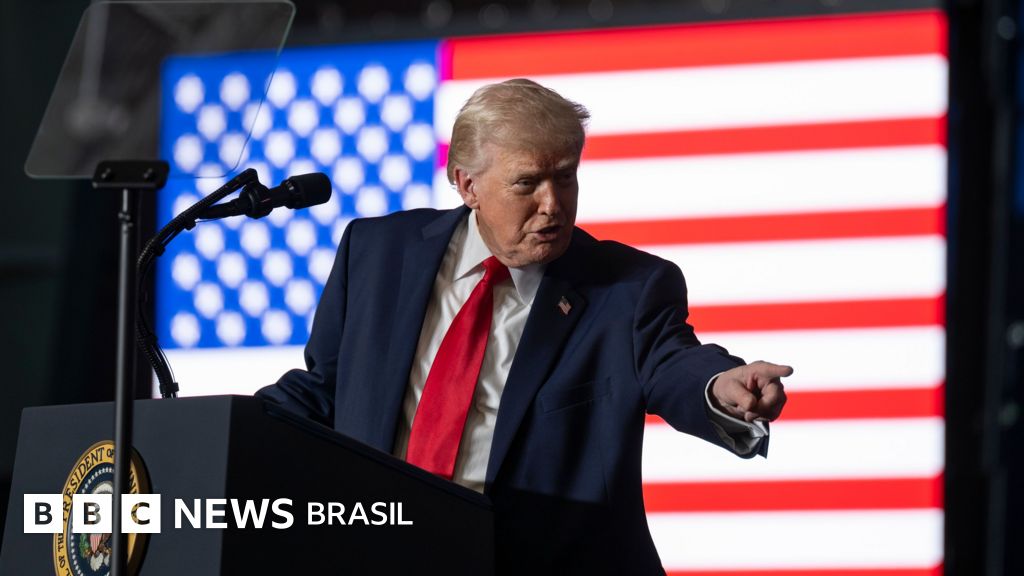



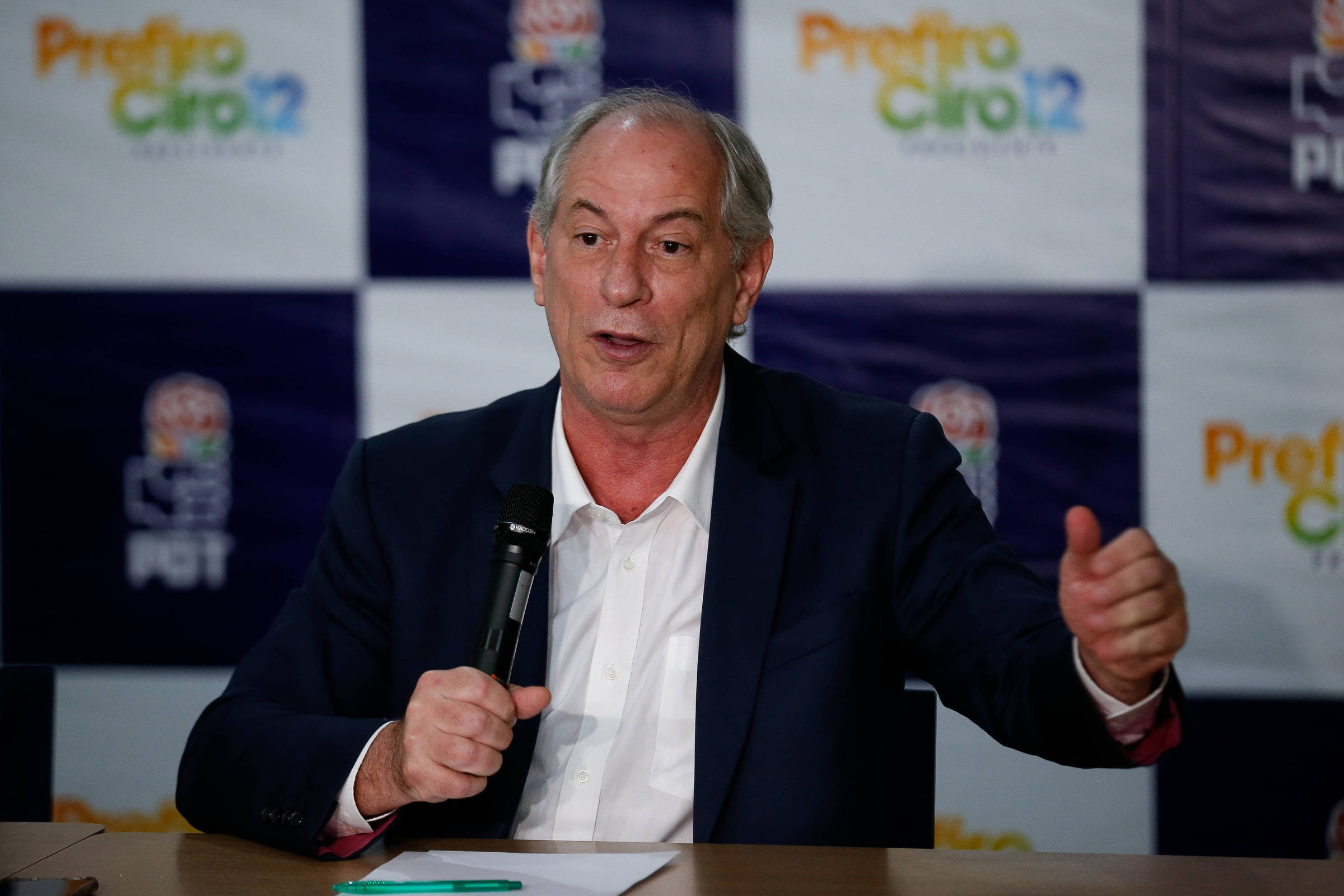
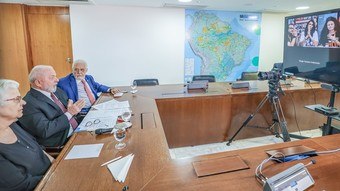
:strip_icc()/i.s3.glbimg.com/v1/AUTH_59edd422c0c84a879bd37670ae4f538a/internal_photos/bs/2023/l/g/UvNZinRh2puy1SCdeg8w/cb1b14f2-970b-4f5c-a175-75a6c34ef729.jpg)


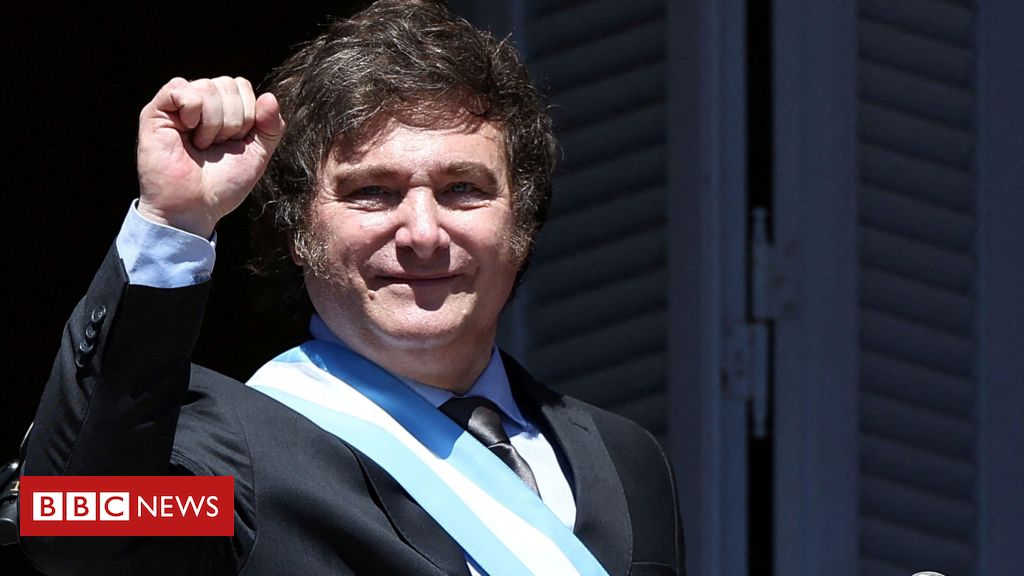



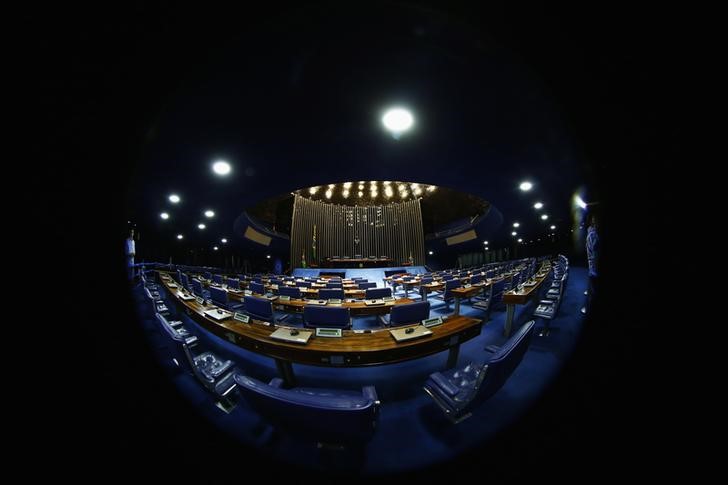
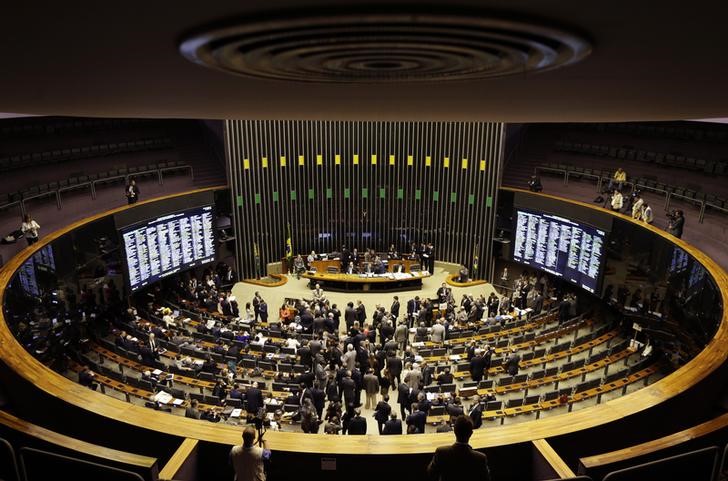


Comentários
Aproveite ao máximo as notícias fazendo login
Entrar Registro